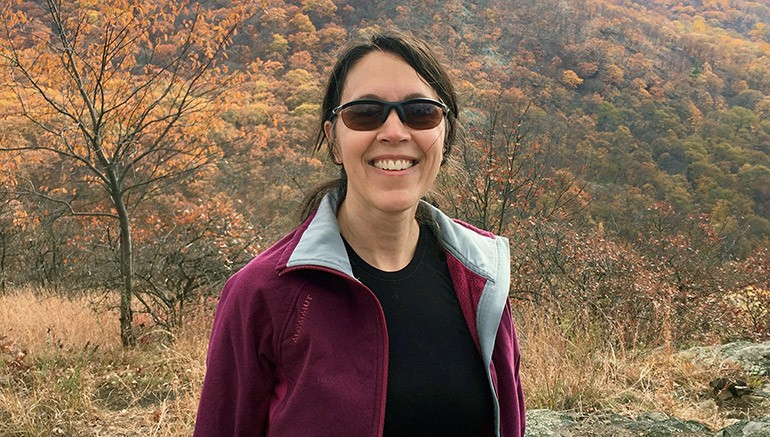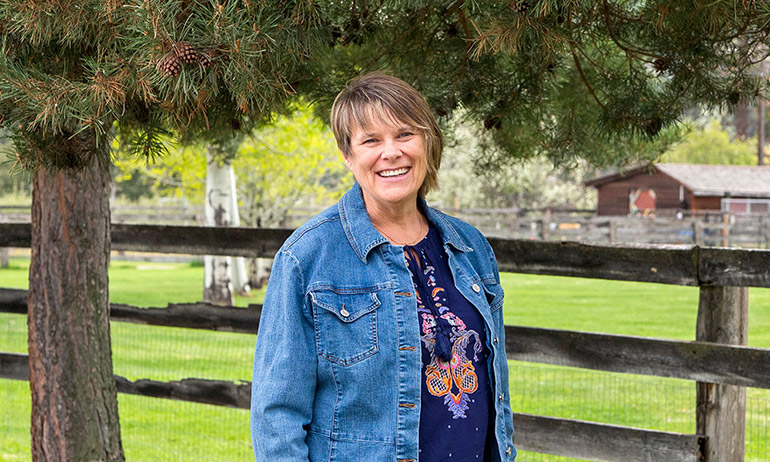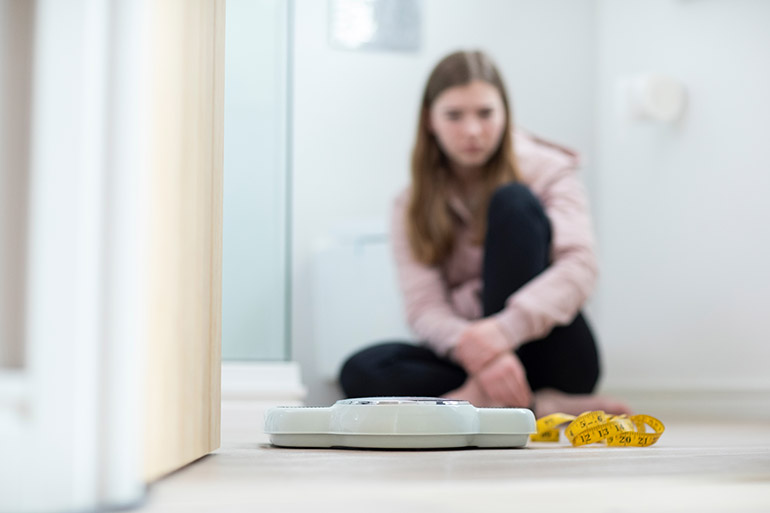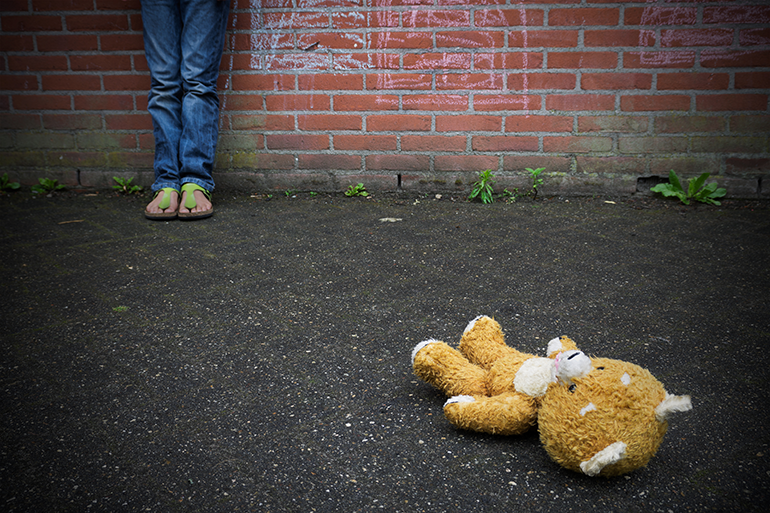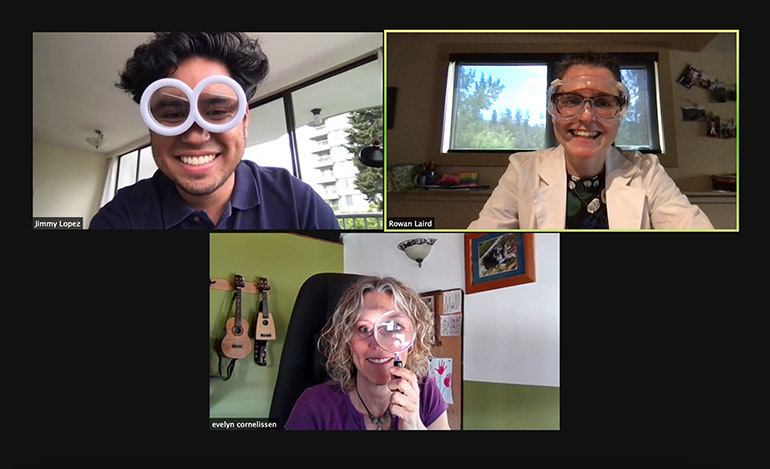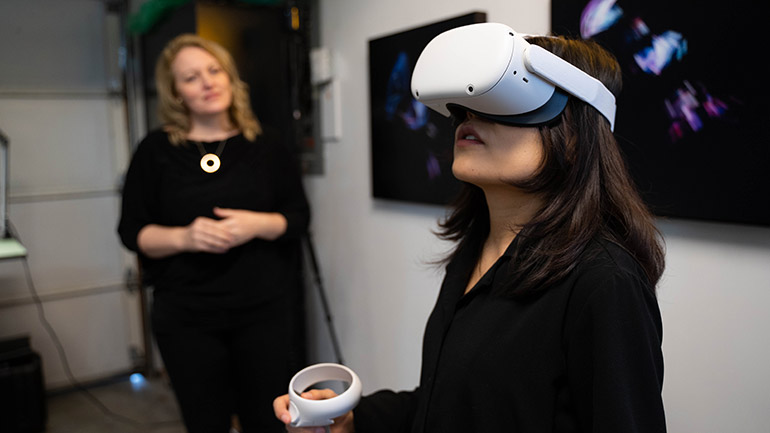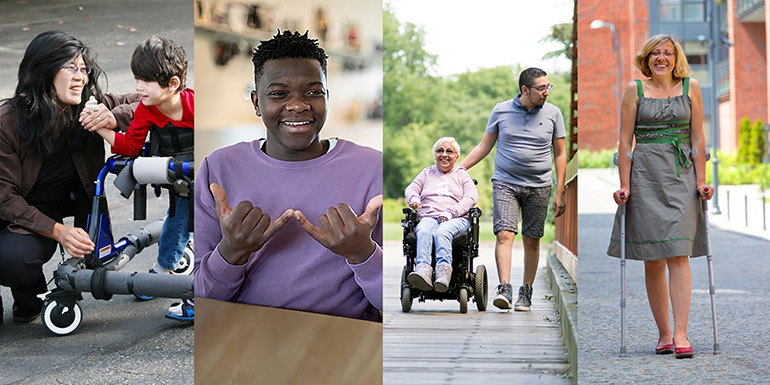
Residents watch at 2 a.m. as the 2003 Okanagan Mountain Park rages out of control. Photo by Fern Helfand.
Dr. Mary Ann Murphy has peered into the lives of families who have lost everything in a wildfire. She knows what haunts them, and what they would do differently if they had to evacuate again. She also knows how they took those first steps to recovery.
Dr. Murphy is an associate professor in the Faculty of Health and Social Development’s School of Social Work, and also teaches in the Irving K. Barber Faculty of Arts and Social Sciences’ history and sociology department. Dr. Murphy has been examining the psychological and sociological impacts of wildfires on those who have lost their homes.
As the province grapples with the latest aggressive wildfire season and with the tragic loss of life and property for the people of Lytton, she searches for lessons from those who have survived wildfires in the past.
What kind of past experience from wildfires can we draw upon to learn about those coping with loss today?
Seventeen years ago, I led a UBC interdisciplinary study (Social Work, Photography, Nursing, Earth, Environmental and Geographic Science) with families who had lost their homes in the unprecedented Okanagan Mountain wildfire in 2003. That research led to a year-long exhibit at the Kelowna Museum and an article printed in the Hazmat journal in 2018.
This was one of the largest wildland-urban interface fires in Canadian history. This fire forever changed our landscape and our psyche, and deeply affected our communal sense of safety and security. We were interested in talking with families one year after the fire to find out how they were doing and to learn more about the depth and significance of the loss of cherished objects and their homes, as well as their experiences with evacuation and adjustment.
Why is it essential to understand these experiences?
While our museum exhibition has long been packed away, we vividly remember the families, stories and the trauma of those who — if they even had the opportunity — rushed to gather up belongings and protect their children and pets.
We still often think of these families, and have worked to impart their lessons to others, including a sense of what was really important. For us, the “new normal” refers to their fortitude in grappling with adjustment and recovery — lessons of particular significance as the frequency and severity of fires only increases. We hope everyone will take time to empathize with the trauma they experienced, as well as what the Lytton and other evacuees are currently going through — which is nothing short of a monumental disruption to their lives.
You talked about the sense of guilt. People desperately grabbed items as they were forced to evacuate their homes, but were saddened by what they had left behind.
There were important items that family members had forgotten as the ‘acute stress’ of the moment trumped logical thinking. Later, they berated themselves for not taking computers, hard drives, the oldest objects in their homes, photographs, Christmas decorations, favourite clothing out of the laundry bin, collections and souvenirs, art work and important papers.
We also recall the profound guilt felt by those who left behind simple but irreplaceable mementos that represented deeply embedded memories — children’s trophies and stuffed animals, family heirlooms and old, inexpensive keepsakes that most represented what they cherished about their home and history.
Those items were forgotten in haste, while items like tennis racquets and food were saved.
Any tips on what people should do to be prepared. And the items they simply shouldn’t leave behind?
The families we spoke with mourned irreplaceable photos and the Christmas decorations no one thinks about in the heat. Their advice was to prepare for fire season by making a list; taking a full video of every room in your house and pre-packing easy-to-grab bins with important objects and documents like passports and insurance papers, including the most treasured things in your home. Think about whether things like jewelry or art work are insured, and whether or not these are things you would want to take with you. Also, think about neighbours who may need assistance. Remember that you may have only a few minutes to leave.
Can you explain why the grief for wildfire victims is so profound?
The victims we spoke with talked about living with the incredible loss of what was more than a structure — as every comfort, every family routine and ritual, everything familiar was turned upside down. They struggled with the loss of something that many people work, sacrifice, tend to and care about — not a house, but a home — a place that reflects yourself, a welcoming safe harbour, a site of shared history, comfort, celebrations and traditions.
But, as we have seen over the past few days, hope and help will come from the most unexpected places. While Lytton homes and the townsite have been burned, we are reminded of the reassuring words of those who left messages for the families we talked with. “The most wonderful thing was hearing how your community came together. It can be both your darkest and finest hour.”


